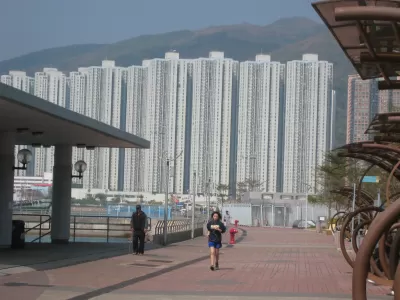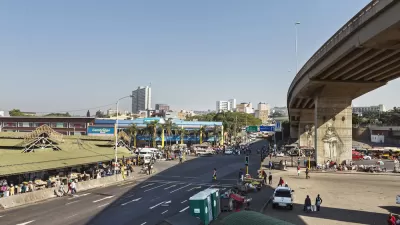Markets for residential property income of East Asia's most expensive cities are slowing down. The U.S.-China trade war is one factor, along with local controls and a mainland Chinese economy applying the brakes.

A piece in the Vancouver Sun looks at slumping property markets in several cities across the Pacific. "While each city in the region has its own distinct characteristics, there are a few common denominators: rising borrowing costs, increased government regulation and volatile stock markets. There's also dwindling demand from a force so powerful it pushed prices to a record in many places — Chinese buyers."
In Hong Kong, "after an almost 15-year bull run that made Hong Kong notorious for having the world's least affordable property market, home prices have taken a battering." Some experts attribute the slump to a slowing mainland Chinese economy, as well as the "simmering trade war" between China and the United States.
In Singapore, "government policies are mainly to blame" for falling prices, with the luxury market particularly hard hit.
In Sydney, "while prices are still about 60 per cent higher than they were in 2012, meaning few existing homeowners are actually underwater, [...] forecasts of a further 10 per cent fall [are] making nervous investors think twice about extraneous spending."
And in Shanghai and Beijing, values are down about 5 percent from their peak, prompting developer giveaways. "One developer in September was giving away a BMW Series 3 or X1 to anyone wishing to purchase a three-bedroom unit or townhouse at its project in Shanghai."
See also: San Francisco Home Construction Expected to Slump This Year
FULL STORY: It’s not just Vancouver: Property market slump goes global, jolting cities from Hong Kong to Sydney

Study: Maui’s Plan to Convert Vacation Rentals to Long-Term Housing Could Cause Nearly $1 Billion Economic Loss
The plan would reduce visitor accommodation by 25,% resulting in 1,900 jobs lost.

North Texas Transit Leaders Tout Benefits of TOD for Growing Region
At a summit focused on transit-oriented development, policymakers discussed how North Texas’ expanded light rail system can serve as a tool for economic growth.

Why Should We Subsidize Public Transportation?
Many public transit agencies face financial stress due to rising costs, declining fare revenue, and declining subsidies. Transit advocates must provide a strong business case for increasing public transit funding.

How to Make US Trains Faster
Changes to boarding platforms and a switch to electric trains could improve U.S. passenger rail service without the added cost of high-speed rail.

Columbia’s Revitalized ‘Loop’ Is a Hub for Local Entrepreneurs
A focus on small businesses is helping a commercial corridor in Columbia, Missouri thrive.

Invasive Insect Threatens Minnesota’s Ash Forests
The Emerald Ash Borer is a rapidly spreading invasive pest threatening Minnesota’s ash trees, and homeowners are encouraged to plant diverse replacement species, avoid moving ash firewood, and monitor for signs of infestation.
Urban Design for Planners 1: Software Tools
This six-course series explores essential urban design concepts using open source software and equips planners with the tools they need to participate fully in the urban design process.
Planning for Universal Design
Learn the tools for implementing Universal Design in planning regulations.
City of Santa Clarita
Ascent Environmental
Institute for Housing and Urban Development Studies (IHS)
City of Grandview
Harvard GSD Executive Education
Toledo-Lucas County Plan Commissions
Salt Lake City
NYU Wagner Graduate School of Public Service




























